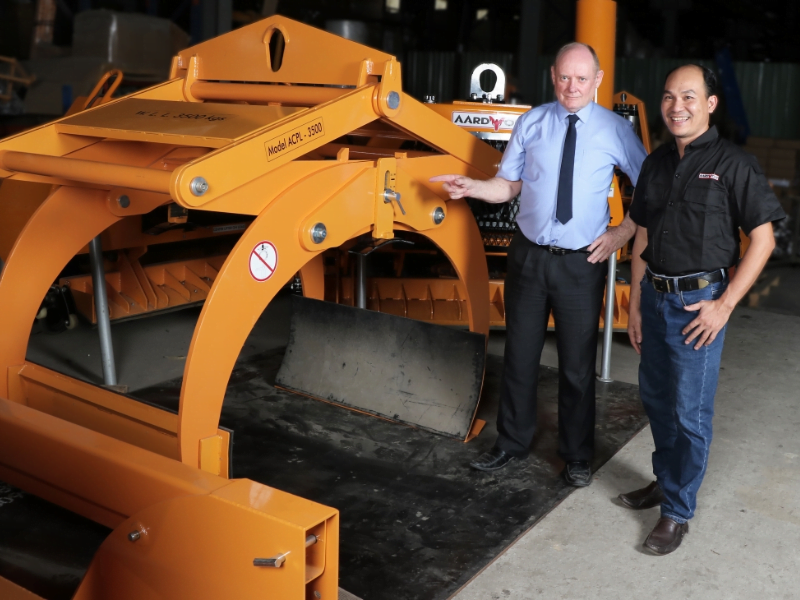Vietnam is a big place. It has just passed 100 million people. It is over 1,700 km from Ho Chi Minh City to Hanoi, further than from Melbourne to Brisbane. And it has one of Asia’s youngest populations, half under 30 years old.
Like many Asian economies, Vietnam is experiencing a massive growth in its middle-class and they are hungry for education. The Australian Government sees many opportunities in Vietnam’s educational services sector.
Last year Australia signed two Memorandums of Understanding (MoUs) with the Vietnamese Government on the provision of educational services.

“The signing of these MoUs as being an important step in enabling Australian educational institutions and training providers to enter Vietnam,” says the Executive Director of the Australian Chamber of Commerce Vietnam Simon Fraser.
“Vocational Education and Training (VET) is particularly important to Vietnam, and we are starting to see significant activity.”
Agreements have also been signed at the province level to supply Australian curriculum and accreditation to Vietnamese VET institutions. Particularly active has been Melbourne’s Chisholm Institute, which is working with the Vietnam Ministry of Labour to upgrade the country’s entire VET system.
The program involves teacher training in Australia for hundreds of Vietnamese vocational teachers and the development of accreditation packages aligned to the needs of Vietnam’s industry sectors, particularly hospitality, travel and IT. Chisholm is also helping with the implementation of these packages in 25 VET colleges across Vietnam.
The program means that Vietnam will become a significantly more important market for Australian educational services. Education is now Australia’s fourth biggest export earner, after iron ore, coal and natural gas.
But unlike those three natural resources, education is a service. Australia doesn’t physically ship education offshore – most of the money is made from students coming to Australia to study. The provision of educational services within other countries as a key way to grow the sector.
Educational services are nearly twice as big as Australia’s exports of all other professional, financial and business services put together. Australia’s universities are no longer funded by the government, at least not wholly. Increasingly they rely on the billions of dollars flowing in from international students, the vast majority from Asia.
In 2018 there were 876,399 overseas students enrolled in Australia. Nearly a quarter (256,000) were from China, followed by India (108,000) and – perhaps surprisingly – Brazil (40,000). Vietnam is in the next rung, along with Nepal, Malaysia, Korea and Thailand, all in Asia and all with 30,000 to 35,000 students in Australia.
The mix of countries is up and down each year, but the total has been rising steadily for decades. Around 350,000 are at universities, with 220,000 in VET and 155,000 doing non-tertiary English language courses, mostly in the private sector.
These numbers are astonishing. They mean that nearly one third of all students in Australian universities are from overseas. In some universities the number is well over 50 per cent. In most cases they are charged full fees – that is where the money comes from and that is why the sector is such a significant export earner.
Australia’s increased activity in Vietnam will not see the number of Vietnamese students studying in Australia increased significantly, but they will grow the education export sector and greatly increase bonds between the two countries.
Australia is one of the largest international destinations for Vietnamese. Over 200,000 Australians were born in Vietnam, with many more again born into the community. Whole suburbs of Sydney and Melbourne have a distinctly Vietnamese flavour.
Mr Fraser is comparatively new on the job. He has been seven months in the full-time position as Executive Director of AusCham Vietnam, based in Ho Chi Minh City where he has been living for almost 14 years. He was previously the Global Head of Customer Delivery for the business process outsourcing (BPO) giant Swiss Post Solutions (SPS-Vietnam), and previously Country Manager for Odgers Berndtson in executive search.
“There is an increased amount of commercial activity in Vietnam from Australian companies,” he told InnovationAsia.
“The Australian presence is low-key but growing. Australian companies are not as obvious as those from Europeans or America, or from other Asian countries like China, Korea and Japan.
“We have a great reputation. Australian companies are seen as very good employers, and Vietnamese just seem to like Australians. Australians generally travel well, with open minds and acceptance of local customs. That goes down very well in Vietnam.”
Vietnam is increasingly important as a software development site, especially for Japanese companies. Vietnam’s biggest development house, FPT Software, has $500 million in annual revenues and offices around the world, including in Sydney and Melbourne. The sheer size of the country, and the rate at which it is developing, ensures significant future growth.
“But I fear that infrastructure is not keeping up,” said Mr Fraser. “Vietnam is in transition. There are many opportunities for Australian companies, but they really need to do their due diligence. If they don’t already have a presence in Vietnam they may need to take a long-term perspective.”
Do you know more? Contact James Riley via Email.
